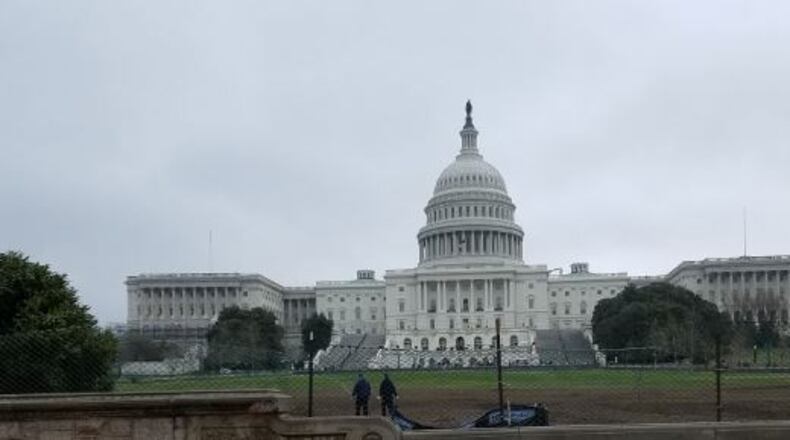Democrats used rules in the Senate Judiciary Committee on Monday to force a one week delay in a vote on the nomination of Neil Gorsuch for the U.S. Supreme Court, as Democratic opponents sent mixed signals on whether or not they would lead an all-out filibuster against President Donald Trump's Supreme Court nominee.
The delay by Democrats - which they can do only once before the Judiciary Committee - also included two other top nominations by President Trump to the Justice Department.
All three of those nominees are expected to gain committee approval next week - from there, it is on to the Senate floor.
For now, a number of Democrats are making clear that they will try to block the Gorsuch nomination, once it reaches the U.S. Senate floor - but it's not clear if all Democrats will join that move.
"As of now I do not believe I can support Judge Gorsuch," said Sen. Patrick Leahy (D-VT), a former chairman of the Senate Judiciary panel.
But Leahy left himself some wiggle room on a filibuster.
Democrats are still angry about Republicans blocking action last year on President Barack Obama's nomination of Merrick Garland for the U.S. Supreme Court.
If they stick together, they could deny the GOP 60 votes on the floor of the Senate, and bottle up the Gorsuch nomination - and more signaled today that is the route they will choose to take.
Some in the GOP have threatened to "go nuclear" and change the Senate rules to get rid of the 60 vote threshold for Supreme Court nominees, as has been done for all other Presidential nominees.
"The Democrats campaign against Gorsuch is desperate, and they should be embarrassed," said Sen. Orrin Hatch (R-UT).
The Senate Judiciary Committee will vote on the Gorsuch nomination on April 3. Then the real battle will begin on the Senate floor.
About the Author
The Latest
Featured



